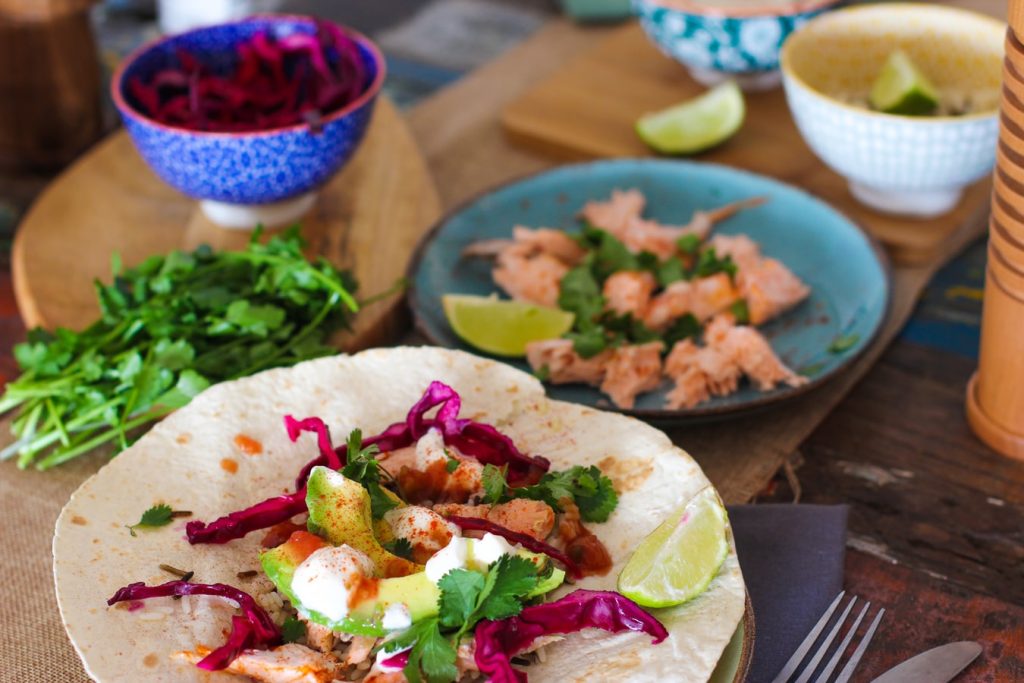
Can Fish Help Me Get Pregnant?
It’s well known that a healthy lifestyle and good nutrition in the preconception period increases the chance of a successful pregnancy. So let’s talk about fish. The good news is there is fairly strong evidence that increasing fish in your diet can improve your chances of falling pregnant. Unfortunately many of my clients who are trying to conceive or are already pregnant are avoiding fish as they’re worried about mercury toxicity or listeria. So it’s time to get the facts about fish for fertility!
Will Eating Fish Help with Fertility?
Fish is high in protein and contains iodine, vitamin D and omega 3 fatty acids which are important nutrients for fertility. A recent study of 500 couples found that couples who consumed more than 2 servings of seafood per week while trying to get pregnant, had significantly higher frequency of sexual intercourse and shorter time to pregnancy. They found 92% of couples who ate seafood more than twice a week were pregnant to the end of one year compared to 79% for couples consuming less seafood.1
As well as being linked to an increase in sexual intercourse omega 3 fats found in fish is associated with improved egg quality, increased embryo implantation and can influence reproductive hormones and menstrual cycle. Researchers investigating women undergoing assisted reproductive technology found women who had a higher intake of omega 3 in their diet, had a higher probability of falling pregnant and the pregnancy resulting in a live birth.2
Getting more fish in the diet for men is important too. Increasing omega 3 fats in the diet has been associated with improved sperm count, sperm morphology and sperm motility.3
So if you’re trying to conceive it’s recommended you both try to include 2-3 fish serves a week. Despite this recommendation many pregnant women or women trying to get pregnant tell me they’re avoiding fish as they’re worried about mercury toxicity or listeria.
Mercury in Fish – The Facts
Mercury is a naturally occurring element which fish take up as they feed. Mercury in fish is not reduced by processing techniques such as canning, freezing or cooking. Babies developing in the uterus are vulnerable as mercury can affect their developing nervous system. Some fish contain more mercury than others. Food Standards of Australia and New Zealand recommend pregnant women and women planning pregnancy should eat shark (flake), broadbill, marlin and swordfish no more than once a fortnight and should not eat any other fish during that fortnight. Orange roughy and catfish should be eaten no more than once a week, and no other fish should be eaten during that week. All other fish species are safe to eat at the recommended levels of 2 to 3 times per week. A serve of fish is equal to 150g.
Top Tips to Reduce your Risk of Listeria Infection
When eating fresh fish you do need to be careful of listeria. Don’t let the fear of listeria stop you from enjoying beautiful fresh fish and all its health benefits.
The following tips will to help reduce your risk.
- Buy fresh fish from a good fish monger
- Be careful not to refreeze frozen fish that has been thawed before selling
- Eat your fish as fresh as possible. Ideally purchase it the day you plan to eat it
- Be aware of using good food hygiene when storing and preparing fresh fish
- Cook your fish until well done in the centre.
- Avoid chilled seafood such as smoked salmon or cold cooked prawns and raw fish like fish in sushi or sashimi
What is the Best Fish to Eat if You’re Trying to Get Pregnant?
Oily fish such as fresh salmon, trout, herring and mackerel are both high in omega 3 fats and relatively low in mercury. Canned sardines are a great source or omega 3 fats and are very low in mercury. They have the added bonus of containing calcium. Canned tuna is really convenient and generally has lower levels of mercury than fresh tuna because tuna used in cans tends to be smaller and younger. Canned fish like tuna and sardines also have a low listeria risk.
Can You Get Omega 3 from Other Foods?
Some nuts and seeds such as linseeds (flaxseeds), chia seeds and walnuts contain omega 3 fats. Unfortunately it’s difficult to get your omega 3 requirements from vegetarian sources alone so an omega 3 supplement might be needed if you don’t eat fish.
Summary
There’s good evidence to suggest eating fish 2-3 times a week can improve fertility in both men and women. It’s important to avoid fish high in mercury and take care to reduce your risk of listeria infection. It is possible to get omega 3 fats from other sources such as supplements, however eating fish has many other health benefits in addition to omega 3 so if possible try to get your omega 3 from your diet.
If you’re trying to conceive or are already pregnant and would like help I’d love to hear from you. I can work with you to optimise your diet to improve your chances of having a healthy baby.
Take the first step and call Nicole at Best Food Forward on 9576 7336 or book online on www.bestfoodforward.com.au

Take the first step and book a consultation with Nicole at Best Food Forward.
